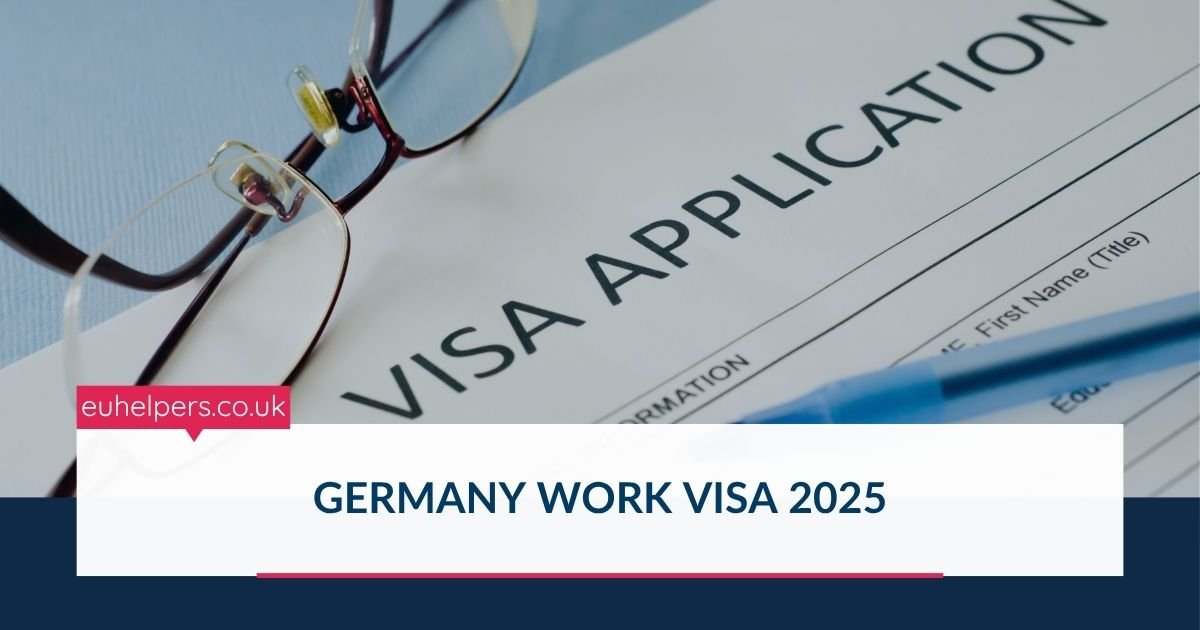
In 2025, Germany is overhauling its work visa system with a series of reforms aimed at attracting more skilled workers and making the application process faster and more accessible. These changes are designed to address labor shortages in key sectors, streamline immigration procedures, and make Germany a more appealing destination for international talent.
Here’s a comprehensive overview of what has changed in Germany’s work visa landscape for 2025:
1. New Online Visa Portal for Faster Applications
One of the most notable updates is the launch of a new Consular Services Portal, which went live in January 2025. This portal is designed to digitize and simplify the visa application process, allowing applicants to submit documents, track their status, and manage their cases more efficiently—reducing paperwork and processing delays.
2. Revised EU Blue Card Requirements
Germany has adjusted the eligibility criteria for the EU Blue Card, a popular residence permit for highly skilled professionals. Key changes include:
-
New Salary Threshold: In 2025, the minimum annual salary required for an EU Blue Card is €43,470.
-
Reduced Thresholds for Specific Occupations: For shortage occupations (e.g., engineers, IT specialists, healthcare professionals) and newcomers to the labor market, the required salary is even lower.
-
Simplified Procedures: The Blue Card remains one of the most streamlined pathways for qualified non-EU workers to live and work in Germany.
3. Opportunity Card: A New Route for Job Seekers
A major innovation is the introduction of the Opportunity Card, a new type of residence permit for those looking to enter Germany without a job offer.
-
Validity: Up to one year.
-
Purpose: To allow skilled workers to explore job opportunities in Germany.
-
Benefits: Holders can engage in trial employment or take up part-time jobs while searching for full-time work.
This card aims to give more flexibility to qualified individuals and increase the chances of matching them with suitable employers.
4. Relaxed Language Requirements for Some Roles
In an effort to attract more international talent, Germany is easing German language requirements for select positions—especially in sectors like information technology and multinational corporate environments. In these roles, English may be sufficient for obtaining a work visa, making Germany more accessible for global professionals.
5. Faster Processing for Critical Sectors
Germany plans to expedite visa processing for professionals in high-demand sectors. With fast-track procedures, applicants working in critical areas like healthcare, engineering, and IT can expect reduced waiting times—often between 1 to 3 months.
6. Streamlined Recognition of Foreign Qualifications
The process for recognizing international degrees and vocational training is also being simplified in 2025. This will make it easier for foreign professionals to validate their qualifications and meet visa eligibility standards without facing lengthy bureaucratic delays.
7. Updated Salary and Qualification Requirements
For most standard work visas (outside of the Blue Card), the general criteria include:
-
Job Offer: A firm job offer from a German employer is required.
-
Qualifications: Applicants should hold a recognized university degree or a vocational qualification involving at least two years of training.
-
Experience: At least two years of relevant work experience in the past five years is typically necessary.
-
Salary: The role must offer a minimum annual gross salary of €43,470, or fall under a recognized collective wage agreement.
-
Language: While German proficiency is often needed, it may be waived for certain specialized roles.
Germany’s updated work visa regulations for 2025 reflect a strong commitment to addressing labor shortages by attracting global talent. Whether through the streamlined EU Blue Card, the innovative Opportunity Card, or simplified procedures for work permit holders, the new framework lowers barriers and accelerates pathways to employment for skilled professionals.
Prospective applicants are encouraged to stay updated with official immigration websites and consult with employers or migration consultants to ensure compliance with the latest rules. With these reforms, Germany is reinforcing its position as one of the most welcoming European destinations for international talent.
